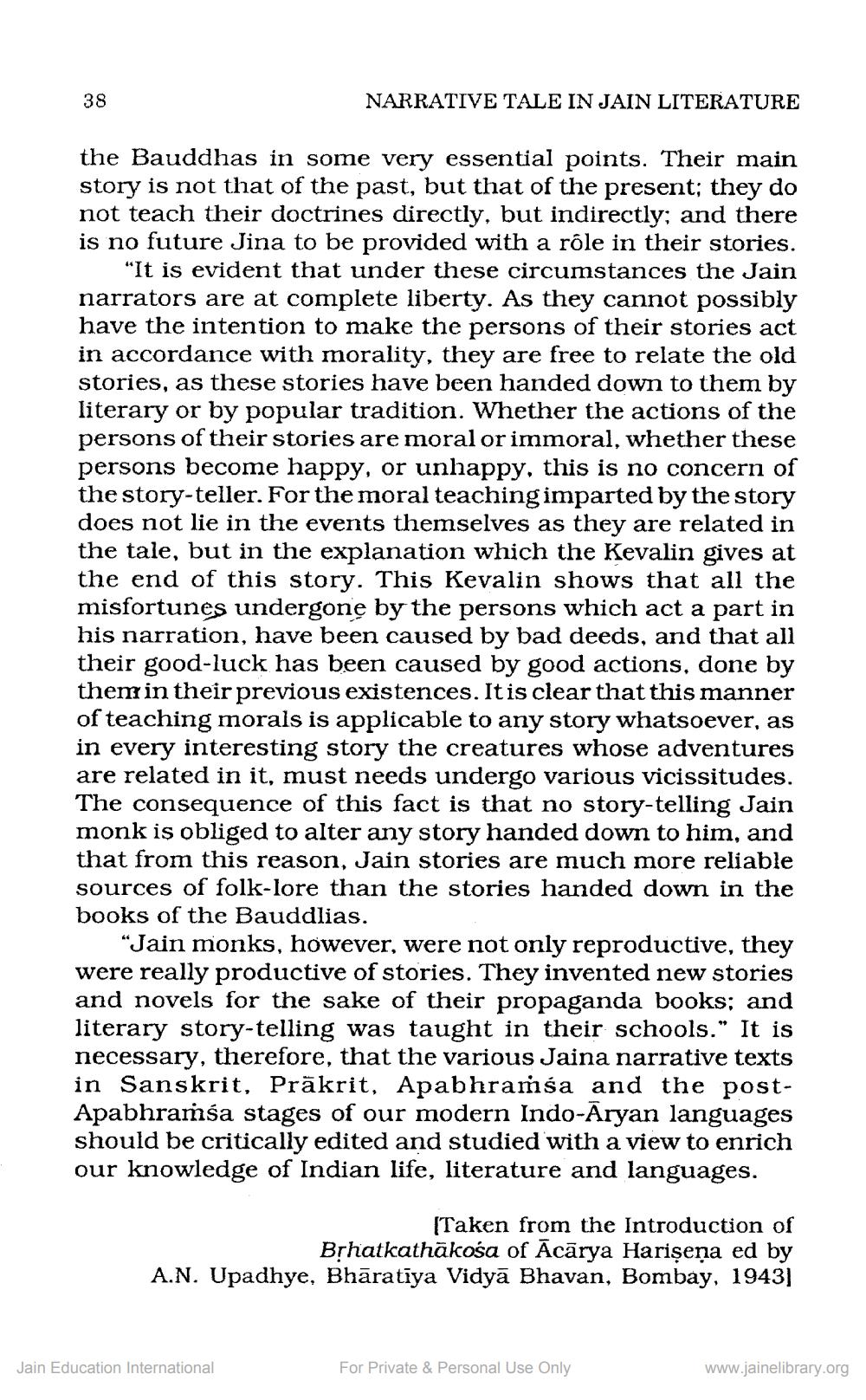________________
38
NARRATIVE TALE IN JAIN LITERATURE
the Bauddhas in some very essential points. Their main story is not that of the past, but that of the present; they do not teach their doctrines directly, but indirectly; and there is no future Jina to be provided with a rôle in their stories.
"It is evident that under these circumstances the Jain narrators are at complete liberty. As they cannot possibly have the intention to make the persons of their stories act in accordance with morality, they are free to relate the old stories, as these stories have been handed down to them by literary or by popular tradition. Whether the actions of the persons of their stories are moral or immoral, whether these persons become happy, or unhappy, this is no concern of the story-teller. For the moral teaching imparted by the story does not lie in the events themselves as they are related in the tale, but in the explanation which the Kevalin gives at the end of this story. This Kevalin shows that all the misfortunes undergone by the persons which act a part in his narration, have been caused by bad deeds, and that all their good-luck has been caused by good actions, done by them in their previous existences. It is clear that this manner of teaching morals is applicable to any story whatsoever, as in every interesting story the creatures whose adventures are related in it, must needs undergo various vicissitudes. The consequence of this fact is that no story-telling Jain monk is obliged to alter any story handed down to him, and that from this reason, Jain stories are much more reliable sources of folk-lore than the stories handed down in the books of the Bauddlias.
"Jain monks, however, were not only reproductive, they were really productive of stories. They invented new stories and novels for the sake of their propaganda books; and literary story-telling was taught in their schools." It is necessary, therefore, that the various Jaina narrative texts in Sanskrit, Präkrit, Apabhramsa and the postApabhraṁsa stages of our modern Indo-Aryan languages should be critically edited and studied with a view to enrich our knowledge of Indian life, literature and languages.
[Taken from the Introduction of Bṛhatkathakosa of Acārya Hariṣena ed by A.N. Upadhye, Bhāratiya Vidya Bhavan, Bombay, 1943]
Jain Education International
For Private & Personal Use Only
www.jainelibrary.org




